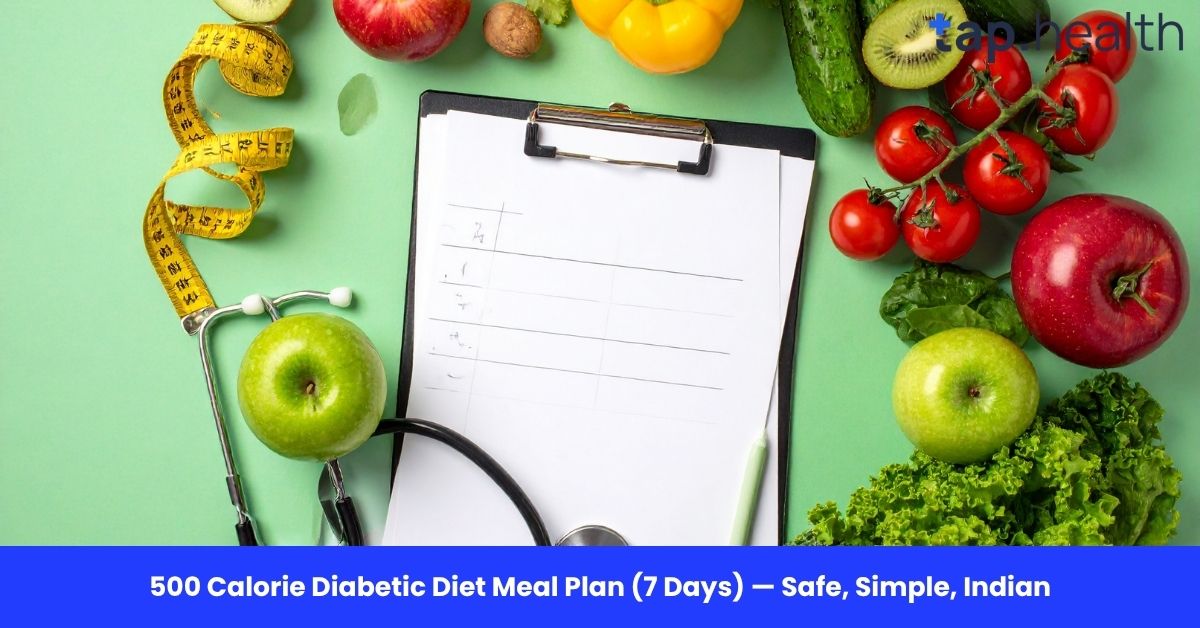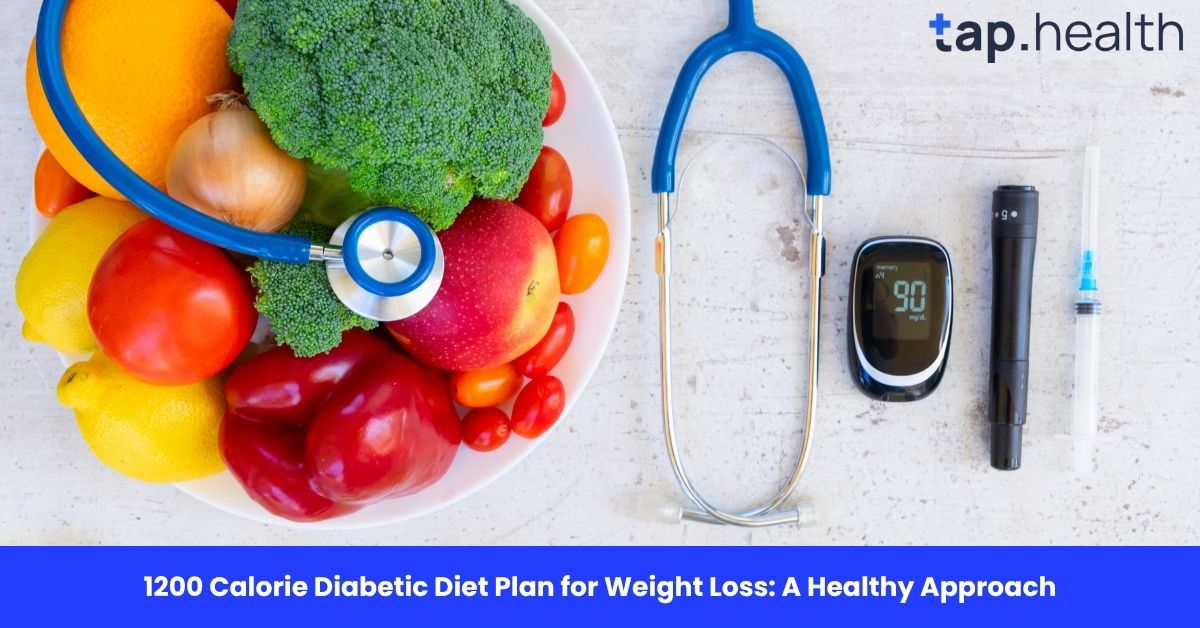Diabetes management is a lifestyle commitment, and a well-balanced diet is one of the most effective ways to control blood sugar levels. The 2000-calorie Indian diet plan for diabetics is designed to offer balanced nutrition while helping individuals with diabetes manage their condition efficiently. This guide covers everything from meal planning, food choices, and key tips to help you create a diabetes-friendly diet using familiar and easily accessible Indian foods.
In this article, we will delve into what makes a 2000-calorie diabetic diet effective, what foods to include, and a detailed meal plan that is both practical and nutritious for managing diabetes.
What is a 2000 Calorie Diet Plan for Diabetics?
A 2000 calorie diet plan for diabetics is structured to maintain optimal blood sugar levels while meeting the energy needs of individuals. This plan focuses on whole foods with low glycemic indices (GI), promoting balanced blood sugar levels and reducing insulin resistance.
Key Components:
- Carbohydrates: 45-50% of the daily calories should come from healthy carbs such as whole grains, legumes, vegetables, and fruits.
- Proteins: 15-20% of calories should be from protein-rich foods like pulses, dairy, and lean meats.
- Fats: Healthy fats, making up 25-30% of the diet, include sources like nuts, seeds, and oils like olive and sesame oil.
Benefits of a 2000 Calorie Diet Plan for Diabetics
1. Blood Sugar Control
A 2000-calorie diabetic diet plan is designed to keep your blood sugar levels in check. By consuming low-GI foods, this diet reduces the risk of blood sugar spikes, which can be dangerous for diabetics.
2. Weight Management
Maintaining a healthy weight is vital for people with Type 2 diabetes. This diet helps you control your calorie intake, aiding in weight loss or maintenance. The focus on whole foods ensures you are not deprived of essential nutrients.
3. Improved Heart Health
Heart disease is a common concern for diabetics. A 2000-calorie diet plan with healthy fats from plant sources, such as flaxseeds, nuts, and seeds, helps improve cholesterol levels and reduces the risk of cardiovascular disease.
4. Reduced Risk of Complications
By controlling blood sugar and promoting heart health, this diet lowers the risk of diabetes-related complications such as nerve damage, kidney disease, and eye problems.
What Foods Should Be Included in a 2000 Calorie Diet for Diabetics?
The foods in your 2000-calorie Indian diet plan should focus on low-GI, nutrient-dense ingredients that are both satisfying and beneficial for blood sugar control. Here’s a breakdown of the foods to include:
1. Complex Carbohydrates
Complex carbs release energy slowly, preventing sudden spikes in blood sugar. Include:
- Whole grains like brown rice, whole wheat, oats, and quinoa.
- Legumes such as lentils, chickpeas, and kidney beans.
- Vegetables like spinach, broccoli, bell peppers, and cucumbers.
2. Lean Proteins
Proteins help with muscle repair and increase satiety. Good sources include:
- Dairy like milk, curd, and paneer.
- Legumes and pulses (moong dal, chickpeas, etc.).
- Lean meats like chicken and fish (in moderation).
3. Healthy Fats
Fats are necessary for absorbing certain vitamins and maintaining hormonal balance. Choose:
- Nuts and seeds like almonds, walnuts, flaxseeds, and chia seeds.
- Vegetable oils such as olive oil, sesame oil, and rice bran oil.
- Avocados and coconut for healthy fat intake.
4. Fruits
Fruits should be included in moderation. Opt for those with a low GI, such as:
- Apples, pears, and berries.
- Papaya and guava are also great diabetic-friendly fruits.
5. Fiber-Rich Foods
High fiber content helps with digestion and regulates blood sugar levels. Include:
- Whole grains (e.g., brown rice, oats).
- Legumes (lentils, chickpeas).
- Vegetables like spinach, cauliflower, and carrots.
Sample 2000 Calorie Diabetic Meal Plan
Here’s an example of a 2000-calorie meal plan that aligns with the nutritional needs of someone managing diabetes. This plan incorporates familiar Indian foods and is structured to maintain balanced blood sugar levels throughout the day.
Breakfast (Approx. 400 calories)
- 1 bowl of oats porridge with 1 cup of low-fat milk and a sprinkle of flaxseeds.
- 1 small apple or orange.
Why this works: Oats are high in soluble fibre, which helps regulate blood sugar. The fruit adds natural sweetness and vitamins, while flaxseeds provide omega-3 fatty acids.
Mid-Morning Snack (Approx. 150 calories)
- 10-12 almonds or 1 boiled egg.
Why this works: Almonds are packed with healthy fats and proteins that prevent blood sugar spikes. Boiled eggs provide high-quality protein and promote satiety.
Lunch (Approx. 500 calories)
- 1 cup brown rice or whole wheat roti.
- 1 cup dal (lentils) with vegetables.
- 1 cup of cucumber and tomato salad with lemon and olive oil dressing.
Why this works: Brown rice and whole wheat roti are complex carbs that release energy slowly. Lentils are a great source of plant-based protein and fibre.
Afternoon Snack (Approx. 150 calories)
- 1 small bowl of low-fat curd or Greek yogurt with a handful of berries.
Why this works: Greek yogurt provides protein and probiotics, which are great for digestion. Berries add antioxidants and are low-GI fruits.
Dinner (Approx. 500 calories)
- 1 serving of grilled chicken or paneer tikka.
- 1 serving of steamed vegetables (e.g., broccoli, carrots, bell peppers).
- 1 small serving of quinoa or brown rice.
Why this works: Grilled chicken is a lean protein, while vegetables provide vitamins and minerals. Quinoa is a complete protein and offers a gluten-free option for grains.
Evening Snack (Approx. 150 calories)
- 1 small banana or a handful of unsweetened popcorn.
Why this works: Bananas provide potassium and natural sugars, while popcorn is a low-calorie, high-fiber snack if made without butter.
Tips for Sticking to a 2000 Calorie Diabetic Diet
- Portion Control: Use smaller plates to help manage portion sizes and prevent overeating.
- Plan Your Meals: Preparing meals in advance ensures you always have a healthy option available.
- Stay Hydrated: Drink plenty of water throughout the day to support digestion and overall health.
- Monitor Your Blood Sugar: Regularly check your blood glucose levels to understand how different foods affect your body.
- Exercise Regularly: Incorporating physical activity, such as walking or yoga, helps improve insulin sensitivity.
Key Takeaways
A 2000-calorie Indian diet plan for diabetics is designed to balance blood sugar levels while ensuring you get the necessary nutrients. The plan includes complex carbohydrates, lean proteins, healthy fats, and fiber-rich foods. By choosing the right foods, planning your meals, and maintaining portion control, you can successfully manage diabetes and lead a healthy life.
FAQs on 2000 Calorie Indian Diet Plan for Diabetics
What should diabetics eat for breakfast?
For breakfast, diabetics should focus on low-GI foods like oats, whole wheat bread, or poha with vegetables. Pairing with a source of protein, such as eggs or yogurt, helps prevent blood sugar spikes.
Can I include fruits in my 2000-calorie diabetic diet?
Yes, fruits are an important part of a diabetic diet, but it’s essential to choose low-GI fruits like apples, berries, and guavas in moderation.
How many carbs should a diabetic eat in a 2000-calorie diet?
In a 2000-calorie diabetic diet, about 45-50% of total calories should come from carbohydrates. Focus on complex carbs such as whole grains, legumes, and vegetables.
Is a 2000-calorie diet good for weight loss in diabetics?
Yes, a 2000-calorie diet can help with weight loss in diabetics by controlling calorie intake and focusing on nutrient-dense, low-GI foods.
Can I include rice in a diabetic meal plan?
Yes, you can include rice in a diabetic meal plan, but it should be limited to small portions of whole grains like brown rice, which have a lower glycemic index.
What are the best snacks for diabetics?
Healthy snacks for diabetics include a small handful of nuts, boiled eggs, Greek yogurt, or fresh fruits like apples and berries. Avoid sugary snacks.
Is exercise important for diabetics following a 2000-calorie diet?
Yes, regular exercise is crucial for improving insulin sensitivity and controlling blood sugar levels in diabetics, even when following a 2000-calorie diet.
How can I make my meals tastier without increasing calories?
Use fresh herbs, spices, and lemon to enhance the flavour of your meals without adding extra calories or sugar. Spices like turmeric, cumin, and coriander also offer health benefits.



